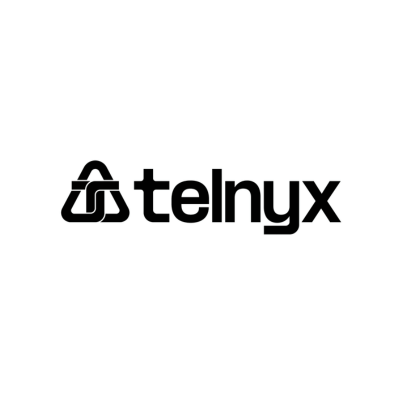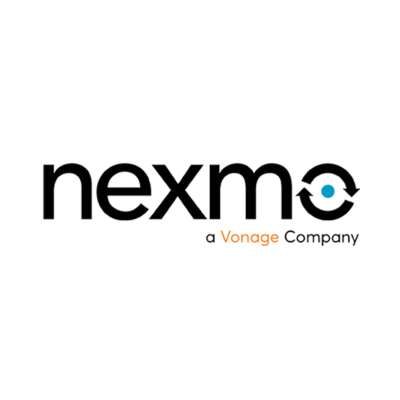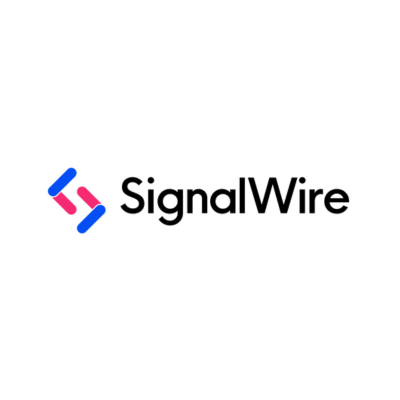Twilio is a leading platform for communication APIs, trusted by developers and businesses to embed voice, video, SMS, and messaging capabilities into their apps and websites. It streamlines communication workflows and supports teams as they grow and scale.
From text messages and emails to WhatsApp integration and voice calls, Twilio delivers a wide range of tools that serve real-world needs. Its flexibility, performance, and business-focused design have made it widely popular across the industry.
But Twilio isn’t a one-size-fits-all solution…
Here are a few reasons you might be looking for an alternative:
- Cost: Twilio can get expensive with regular use. If budget is a concern, there are free or more affordable options available that offer similar core features.
- Overhead: Twilio offers many features, but this can be overkill if you only need a solution tailored to a specific function, such as messaging or video. In such cases, purpose-built alternatives may serve you better.
- SMS Marketing Limitations: Twilio’s strict compliance rules and policies can make SMS marketing feel restrictive. If SMS campaigns are a key part of your strategy, you may want a platform that’s easier to manage for that purpose.
In this blog, we’ll discuss 10 Twilio alternatives to consider in 2026, each offering unique features, better pricing, or a more focused experience depending on your needs.
10 Best Twilio Alternatives in 2026
1. Plivo

This Twilio alternative should suit you as it has a strong network of around 1,600 international operators. Offering customizable APIs for SMS and voice services, Plivo is cost-effective as you can send large volumes of SMS and make calls at a cost far below that of Twilio.
Founded in 2011, Plivo is a good option for customer engagement and loyalty marketing. You can also expand your contacts and organically grow your customer base with Plivo.
Pros
- It is a cheaper alternative to Twilio.
- As a CPaaS service provider, it offers a strong network.
- It is global, allowing you to connect to 195 nations.
Cons
- Plivo does not have as many features as Twilio.
- To use call-in services, you need to be a premium subscriber.
- It has a limited developer community and support.
Pricing
- Pay-as-you-go for voice calls, SMS, SIP trunking, and phone numbers.
- Premium charges start at $999 per month.
Check the Plivo pricing details.
Is Plivo right for me?
Plivo would be right for you if your business dealings are global. For smaller platforms or sales outlets, it may prove costly.
2. Ringover

Ringover is a cloud-based business phone system that delivers a full suite of communication features, including voice calls, text messaging, and video conferencing.
It integrates seamlessly with over 80 business tools, such as CRMs and helpdesk platforms, making it a practical choice for teams that rely on connected workflows. With its multi-channel setup, Ringover simplifies business communications through an intuitive interface for SMS, video calls, and emails.
Pros
- Ideal for customized real-time communication support.
- Offers programmable Voice and SMS APIs.
- A perfect solution for better call management.
Cons
- Ringover’s omnichannel contact center software is difficult to manage.
- You have to deploy and start using it the same day. It may not work properly without a stable internet connection.
Pricing
- Monthly pricing starts at $21 for the Starter Plan.
- The Business Plan costs $44 per month.
Check the Ringover pricing details.
Is Ringover right for me?
It will suit you as it offers a one-month free trial followed by flexible pricing models.
3. Vonage

Vonage offers a streamlined suite of APIs for SMS, MMS, voice, and video, making it a viable alternative to Twilio for SMS and broader communication needs. With strong international connectivity, it’s well-suited for small and medium-sized businesses looking for scalable solutions.
Its VoIP platform is known for delivering clear voice quality, making it effective for call management across a range of industries. Many businesses have reported noticeable cost savings, adding to its appeal as a budget-friendly communication system.
Pros
- The adaptive routing mechanism makes it fast.
- Secure message delivery platform.
- High level of data safety.
Cons
- Advanced features come at a higher cost.
- The navigation process is cumbersome.
- Limited free-trial options.
Pricing
- Prices start at €0.00735 per message.
- For Global IP messages, rates go as low as €0.00072 per message sent.
Check the Vonage pricing details.
Is Vonage right for me?
This is costly, and many small or medium-sized business owners may find it unaffordable.
4. Sinch

If seamless business integration and consistent communication, both internally and externally, are key priorities, Sinch stands out as a strong option and a reliable Twilio chat alternative. This cloud-based, intuitive platform offers a comprehensive set of features that boost customer engagement through mobile messaging, voice, and video.
Sinch’s unified interface consolidates multiple communication channels into a single platform. Backed by a global infrastructure, it supports business growth by handling increasing volumes with stable and efficient communication protocols.
Pros
- Strong support for multi-channel communication.
- Live chat is available.
- Very strong digital security protocols.
Cons
- It is a costly business communication service.
- Supports fewer languages.
- Limited text-to-speech capabilities.
Pricing:
- SMS-enabled numbers start at $100 per month, with a $20 one-time setup fee.
- Local numbers are available for $30 per month, plus a $30 one-time setup fee.
Check the Sinch pricing details.
Is Sinch right for me?
As a business communication platform, it is solid. But its suitability depends on your ability to manage complex technological systems.
5. Bandwidth

Bandwidth is a versatile and reliable communication platform designed to scale with your business. As a viable Twilio video alternative, it offers strong performance for VoIP, video conferencing, and data-heavy tasks.
By automating the flow of data packets across the network, Bandwidth ensures smoother communication with fewer delays. Its higher capacity reduces network congestion, resulting in better call quality, faster file transfers, and consistent video performance—key factors for a seamless user experience.
Pros
- Direct carrier connections ensure high call quality.
- Emergency services support is available.
- Highly cost-effective for businesses managing a high call volume.
Cons
- Lacks advanced communication features.
- Smaller user community.
- Additional features can be expensive.
Pricing
- U.S. local inbound calls are $0.0055 per minute.
- Enhanced text-to-speech is priced at $0.0030 per 100 characters.
Check the Bandwidth pricing details.
Is Bandwidth right for me?
If you’re running a large business with international clients, Bandwidth is worth considering. But smaller businesses on a tight budget might find more value in other platforms with broader feature sets at lower costs.
6. MessageBird

MessageBird is a robust Twilio alternative for calls and SMS, offering a cloud-based communication platform with intuitive APIs. It connects businesses to customers across multiple channels—including SMS, voice, WhatsApp, and more—while providing global reach at competitive rates.
Seamless integration with popular CRM and marketing tools helps simplify communication workflows. Additionally, MessageBird’s user-friendly dashboard allows businesses to manage conversations and track campaign performance efficiently.
Pros
- Global reach with support for over 900 networks.
- Omnichannel communication including SMS, voice, email, and chat apps.
- Easy integration with third-party software and tools.
Cons
- Pricing can be complex depending on usage and region.
- Customer support response times vary.
- Some advanced features require additional setup.
Pricing
- MessageBird charges based on the number of Contacts you are targeting every month. $45
/month - Get customized pricing options for businesses reaching more than 50,000 monthly contacts.
Check the MessageBird pricing details.
Is MessageBird right for me?
This platform suits businesses looking for flexible global communication options with a mix of messaging and voice. It’s ideal if you want to reach customers on multiple channels seamlessly.
7. Telnyx

Telnyx is a full-stack programmable telecom platform offering voice, messaging, and more via APIs. As a strong Twilio alternative, it emphasizes reliability, affordability, and solid developer support.
With direct-to-carrier connections, Telnyx ensures superior call quality and low latency. Its real-time call control and global coverage make it ideal for businesses seeking scalability and robustness.
Supporting multi-cloud redundancy, secure media handling, and number portability, Telnyx delivers flexible, carrier-grade solutions without sacrificing performance or control, making it a compelling choice for enterprises.
Pros
- Direct carrier access improves call quality.
- Transparent pricing with no hidden fees.
- Robust API and developer tools.
Cons
- The interface is technical and less user-friendly.
- Limited customer support channels.
- Documentation may require technical expertise to fully utilize.
Pricing
- Send outbound messages: $0.004 per message part + carrier fee
- Receive inbound messages: $0.004 per message part + carrier fee
Check the Telnyx pricing details.
Is Telnyx right for me?
Best suited for developers and businesses comfortable with technical integrations seeking cost-effective communication solutions.
8. Nexmo (Vonage API)

Nexmo, now integrated with Vonage, stands out as a trusted Twilio alternative offering APIs for SMS, voice, phone verification, and other communication services. With extensive global coverage, it supports customer engagement, secure authentication, and timely notifications.
Renowned for its simple API integration and developer-friendly design, Nexmo allows businesses to send messages and make calls efficiently and reliably. Its intuitive dashboard provides detailed analytics and delivery tracking, giving real-time insights into communication performance.
Competitive pricing combined with robust support makes Nexmo a practical option for both startups and established companies.
Pros
- Strong global coverage.
- Easy to integrate with existing software.
- Flexible and scalable for businesses of all sizes.
Cons
- Support can be slow during high-demand periods.
- Pricing varies widely by region and volume.
- Some users find the API documentation challenging.
Pricing
- Basic Mobile: $13.99 per month/per line plus taxes & fees
- Premium: $20.99 per month/per line plus taxes & fees
Is Nexmo right for me?
Good for businesses that need dependable communication APIs with a wide international footprint.
9. TextMagic

TextMagic is a straightforward yet powerful Twilio alternative focused on SMS marketing and business messaging. Specializing in bulk messaging, two-way texting, and scheduling, it caters mainly to small and medium businesses seeking an easy-to-use SMS solution.
By concentrating on simplicity and user-friendliness, TextMagic enables businesses to engage customers effectively without the distractions of complex communication features. Essential tools like contact management, message templates, and delivery tracking help streamline customer interactions and campaign management.
Pros
- User-friendly interface.
- Affordable bulk SMS pricing.
- Useful features for SMS marketing, like scheduling and templates.
Cons
- Limited to SMS (no voice or video).
- Less suitable for complex communication workflows.
- Somewhat basic reporting features.
Pricing
- Flexible usage-based pricing
- Estimated total cost: $59 for 1000 SMS across the US
Check the TextMagic pricing details.
Is TextMagic right for me?
Ideal if you want a simple, cost-effective SMS solution without additional features.
10. SignalWire

SignalWire is an emerging Twilio alternative focused on modern cloud communications with open-source roots. It offers APIs for voice, messaging, and video with competitive pricing and low latency.
Known for strong developer tools and flexible integration, SignalWire targets businesses and developers looking for customizable communication solutions with good performance and cost savings.
In 2026, it introduced enhanced support for WebRTC, improved real-time video infrastructure, and expanded geographic coverage for number provisioning and porting.
Pros
- Open-source foundation offers flexibility.
- Competitive pricing with volume discounts.
- High-performance APIs with low latency.
Cons
- Smaller user community compared to Twilio.
- Fewer pre-built integrations.
- May require technical expertise for full use.
Pricing
- AI Agent Voice: $0.16 per minute
- Cloud Call Recording API: $0.00200 per minute
Check the SignalWire pricing details.
Is SignalWire right for me?
It is best for tech-savvy users and businesses wanting customizable, scalable communication APIs.
My Personal Experience Using These Platforms
We used Twilio’s service for about six months but then switched to Infobip, which is a much cheaper alternative. We’re still using Infobip because its pricing structure suits me well, as it is more affordable.
Comparing Infobip with Twilio: 3 Key Points
- Twilio is costly, whereas Infobip is inexpensive.
- Twilio’s interface can be difficult to navigate, but Infobip’s is easy to use.
- Twilio is better suited for tech-savvy users, while Infobip can be managed effectively by those with limited technical knowledge.
Comparison of Pros: Twilio vs. Infobip
- Twilio is faster, which is an advantage over Infobip; however, Infobip’s interface is better designed.
- Twilio offers a wider coverage area compared to Infobip.
- Both Twilio and Infobip users generally find the experience straightforward and satisfactory.
Comparison of Cons: Twilio vs. Infobip
- Both Twilio and Infobip lack operational simplicity.
- Business users with limited tech knowledge may find Twilio challenging, while Infobip is comparatively easier.
- Infobip does not offer the same special features that Twilio provides.
Pricing
Both Twilio and Infobip offer a free trial period.
Should You Choose Infobip?
It depends on the user’s priorities and criteria. For those seeking a Twilio WhatsApp API alternative, Infobip is a viable option.
FAQs
No. Most Twilio alternatives have a simple digital onboarding process. Just follow the steps and instructions from the new provider to get started.
Yes. Open-source options like SignalWire, Asterisk, and FreeSWITCH offer free or low-cost services that can be used for business communication needs.
It depends on your usage and needs. Plivo, Telnyx, and SignalWire are among the most affordable options for messaging and voice services.
Conclusion
Choosing the right communication platform depends on your budget, technical needs, and the region your business operates in. Whether you’re a startup looking for WhatsApp integration or a growing company needing reliable VoIP services, there’s an alternative on this list that can fit your use case better than Twilio.
Each tool we’ve covered has its own strengths—some offer better pricing, while others shine with simplicity, global reach, or developer-friendly APIs. The key is to find what aligns with your goals, not just what’s most popular.
👇 We’d love your input!
Have you used any of these Twilio alternatives? Which one worked best for your business? Drop your thoughts in the comments—your feedback might help others make smarter choices.
And if you’re struggling with a specific software or want help finding a better alternative, let us know! We’ll cover it in our next article.
Hi there! I’m Nick Cullen. As the Senior Content Editor with Solution Suggest, my responsibility is to scrutinize and refine our articles and reviews, focusing on software solutions, games, apps, and websites. I’m dedicated to delivering reliable and enlightening content that offers viable alternatives to your current digital tools. If you have any suggestions or inquiries, you can reach me at editor@solutionsuggest.com. Also, I invite you to connect with me on LinkedIn!
